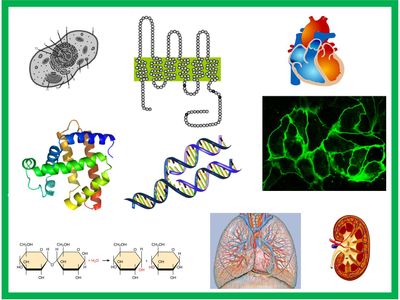Anatomy (4 hours): Main structures and features of the human body (systems, organs, tissues).
Cell biology (4 hours): The structural components of the cells. Basic principles of cellular functions: transport, metabolism, signaling, reproduction.
Physiology (14 hours): Basic principles of the human body functions, covering the nervous system, respiration, digestion, immune and endocrine system, acid-base homeostasis, water and salt balance.
The overall aim of the course is to give a general introduction to biomedicine to students with background in physics or mathematics, interested in the interdisciplinary field between physics/mathematics and biomedicine.
After the course the student should be able to:
- in their future professional practice, successfully communicate with colleagues that have a biological background
- describe the structure of the human body at the level of integrative systems, organs, tissues, and cells
- recognize the major processes and structural constituents in the basis for neuronal signaling, respiration, immune defence, energy generation, regulation of acid-base and water-salt balance
- identify the major processes and structures involved in the transport within the animal cells
- classify the major driving forces for transport of various substances between the cells and extracellular space
- understand the major processes that allow the organism to function as a whole (neuronal signaling, immune defense, hormone action)
